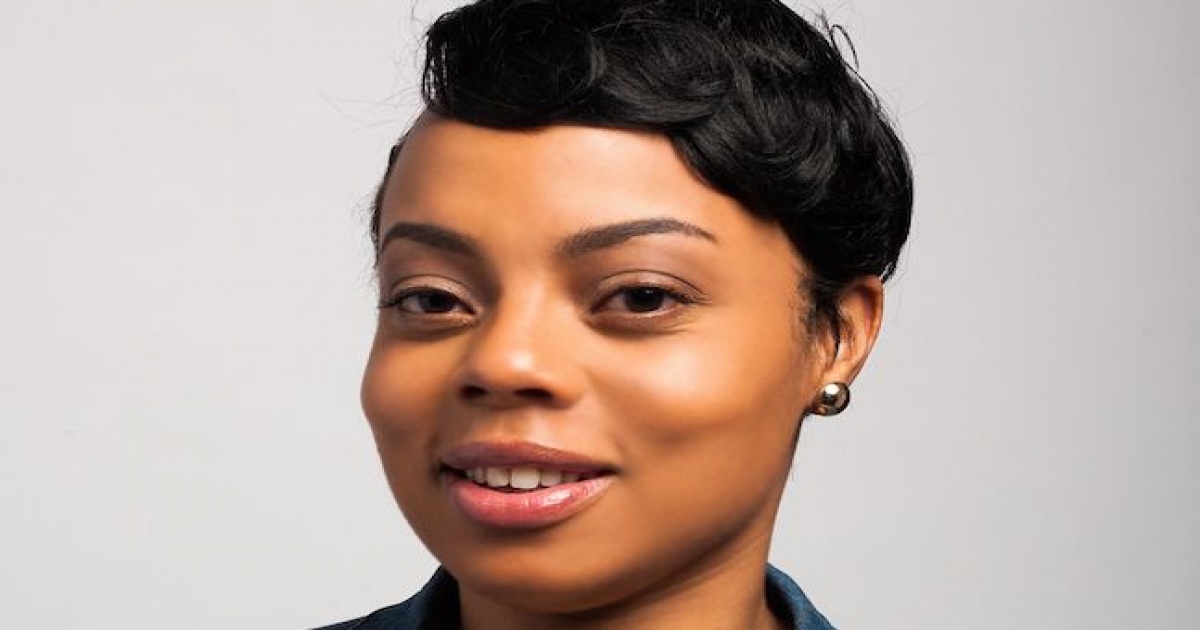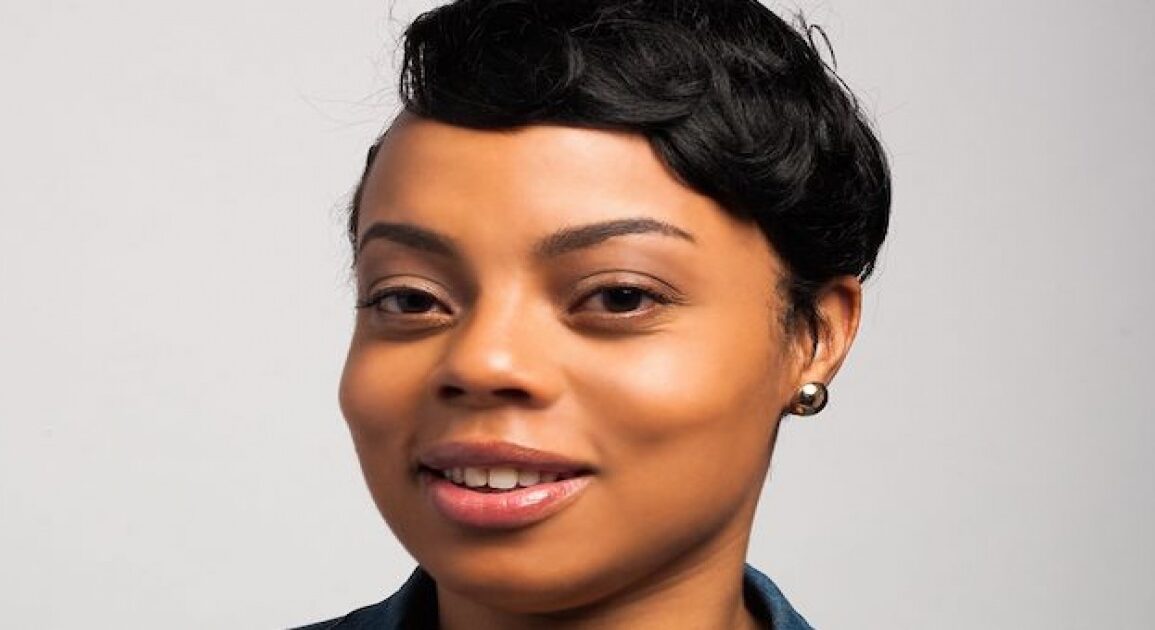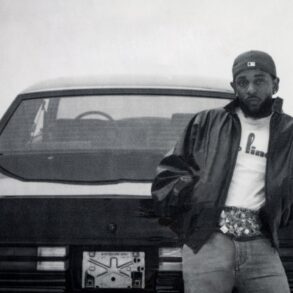
During this year’s Women In Music Awards, we inducted game-changing industry executives (including one posthumous award) into the Roll Of Honour, in association with TikTok.
They join the pantheon of previous honourees, including some of the biggest names in the business, from Emma Banks, Sarah Stennett, Rebecca Allen to Kanya King, Stacey Tang, Charisse Beaumont and Mary Anne Hobbs, who have been selected since the awards began in 2014. The Roll Of Honour aims to highlight the breadth, depth and variety of individuals who are trailblazers in the music industry, with their activities consistently benefiting women, or focusing on empowerment/gender disparity.
Following the Women In Music Awards ceremony, Music Week is running Q&A interviews with all of this year’s Roll Of Honour inductees.
Esta Rae was listed as one of the top 50 Neurodivergent Women in 2023.
She is the senior events manager at Association Of Independent Music, and runs her own organisation, Life With Dyslexia, educating businesses on neurodiversity. Alongside this, she runs her freelance event company, No Limit Management, specialising in event curation and talent management.
Rae always had a love for music from a young age, growing up in East London her peer group at the time are now household names such as Lethal B, Ghetts, DJ Target and Nicky Slimting Walker to name a few. She was not aware she had dyslexia, dyspraxia and number dyscalculia until she was in her late 20s, and when she realised how unrecognised neurodivergence was in the industry, she became an advocate for those with learning needs.
From 2016 to date, she has worked on The Rated Awards, working closely with the GRM’s CEO Posty and Bernie. In 2017, her management journey began with entertainer Very Vee Brown securing brand collaborations across two years, with Merky Festival, BBC Radio, JBL, JD Sports, TikTok, Fenty and more, and which led to a co-management partnership with Since ’93.
Since 2018, Rae has been working with record labels on artist campaigns, brand activations, producing festivals and events with companies like Spotify, PPL, Vevo, BBC Radio 1Xtra, Sony, Amazon Music and more. She has spoken about how being neurodivergent has made many elements of her career difficult, but she has continued climbing up the ranks, and in 2019, Rae graduated with an MA in music business management and her senior role at AIM. She produced the 2022 and 2023 AIM Awards at the Camden Roundhouse with acts such as Lethal B and The Libertines, and executive produced the visual 50 Years Of Hip Hop segment supported by BBC Radio 1Xtra at the 2023 AIM awards.
Rae has also worked on the GRM Gala since 2020, and is part of the 2023 Power Up cohort. She wrote the foreword for the Unseen Unheard report about being Black and disabled in the music industry, is a neurodivergent public speaker at industry conferences and has appeared in DJ mag, Notion Magazine and on podcasts. Rae continues to champion the importance of a neuro-inclusive music industry throughout her work.
How do you feel about joining the Music Week Women In Music Roll Of Honour?
“I’m very surprised, happy and shocked, but equally I’m very honoured. I was just like, ‘Wow, they’re recognising me!’ – a neurodivergent woman working on some of the biggest events in the industry like the GRM Gala, The AIM awards, The Rated awards, and Originals Festival to name a few. When you look at the Roll Of Honour, there have been amazing women across the years on it, and I love the fact that, being dyslexic and dyspraxic, I can be proud of my learning needs and encourage people to not let that stop them. I am being seen and I am being heard, that is such a huge thing for me and the neurodivergent community.”
How do you look back on your early years getting into the industry?
“I started out in the industry many years ago, during the era of Channel U and all those pirate radio stations. A lot of my peers – like Lethal B, Nicky Slimting, Kano, Maxwell D – were [at that time] in the music industry. I watched them, learnt from them and realised I love the [music] ‘space’ and wanted to be a part of it, but I didn’t know how it would happen, because at the time I was studying and working full-time. When I look back at it, I realise how hard my journey was because I had no plan, but at the time you don’t recognise it because you’re just channelling through.”
Did you have a mentor at that stage?
“I didn’t have an official mentor, but because I did a lot of work with GRM Daily, I really looked up to Posty. Although he was a man and I’m a woman, it was his work ethic. I watched a lot of what he’d done and how he was able to be part of a brand, but not in the forefront, and that’s what I’ve carried with me. I just want to get the work done, I’m not worried about being known, I just want to deliver. I think having that attitude helped me because I wasn’t concerned about who I was working with, I just wanted to make sure that I delivered and got the job done to the best of my ability.”
You were listed as one of 2023’s Top 50 neurodivergent women by Women Beyond The Box for your platform Life With Dyslexia, you contributed to Black Lives In Music’s disability report this year and have talked at various events including the London AVA Conference and the Dyslexia Show. Are there enough resources in place to support neurodivergent people’s experiences in the music industry as it stands currently? And what was the inspiration behind setting up your own platform?
“The inspiration behind setting up my own platform was because I realised that there are not enough young Black women from ethnic minorities and diverse backgrounds who are being a voice for neurodiversity, especially in the music industry. I’m not saying that everybody has to be proud of the fact that they have learning needs, because everybody manages things differently, but I felt that if I had somebody like myself [when I was coming up] who was able to say, ‘You’re neurodiverse, but you’re amazing, your brain works differently to most but you’re just as good and your neurodiversity brings unique skills to any organisation you join,’ I would have been able to get even further than where I am now. I was not seeing people in the music industry being an advocate for [those with] learning needs, so I filled that gap.
“I now consult on that, within labels and industry organisations, because there are still not enough things being done for neurodivergent employees within the music business. There are a lot of companies that are, but we still have a long way to go. For example, one question to senior management can change the whole dynamic [of an organisation], and that is: ‘Exactly what options do you have in place for your neurodivergent employees who may work more efficiently outside of the nine to five working hours, because of how their brain works?’ Some people don’t know how to answer, some people do, and the work I do with them helps them to look at the different levels of support that those employees might need. The music industry needs to start thinking a lot more about what creative people need to be able to deliver.”
The level of self-belief I have now is a huge achievement
Esta Rae
You have a BA honours degree in social work and a Masters degree in music business management. How have your studies aided or influenced the work you do?
“When I was working in social work, I was working with so many children who had learning needs, and it helped me to understand that I can help younger people in the music industry as well. I was always doing my event stuff on the side, that was my passion project – events and the music industry, and I was like, ‘You’ve worked with children and families for 10 years, you’ve also been doing music in terms of events, production, artists management, why don’t you combine the two?’
“My masters in music business management at [University Of] Westminster has also given me more confidence because I have that academic learning behind me. My tutor, Sally Anne Gross, also pushed me to my greatest ability despite my learning needs. This support helped me so much.”
You also run your own independent talent and event management business, No Limit Management, and work closely with GRM Daily. What was the inspiration behind setting it up? And how would you define the role of the manager?
“The inspiration behind setting that up was because I remember thinking to myself, ‘You can only do so much in terms of working under a corporate umbrella.’ When you’re passionate about something, when you know that you can deliver, when you do a job that you love, they say you will never work a day in life again, that’s the saying. And I was realising that I was going to work, then doing events, artist and talent management, stuff like that until sometimes like 3am, and I would still wake up the next day with spring in my step.
“That’s when I realised I just loved doing it all, so I thought, ‘You know what, Esta, set up your own company.’ I also felt that there weren’t enough female managers in the industry, and when I set my company up, that was going to be an opportunity for me to say to other women, ‘Hey, come and work with us. Let’s do this!’”
What are the biggest obstacles in getting into events in the music industry in your opinion?
“It depends how you look at it. Throughout my career, I did a lot of voluntary work. Sometimes you have to put money to one side, and if you want experience, you’ve got to go out and get it for yourself, in whatever capacity. But I think one of the problems is there’s not enough paid positions or apprenticeships for people to get into events. When you have an inroad [into the industry] to be able to start and get some advice it really helps, but there isn’t currently enough and that’s an obstacle.
“I tell everybody now that, as much as they see me delivering some great projects, a lot of my work was under minimum wage and voluntary for some years. It was worth it in the end, I don’t want another generation having to go through what I went through. More money needs to be injected into helping people to get into the arena.”
What advice would you give to people wanting to work in events?
“Make sure that you don’t go for one particular type of event to work in. I’ve worked in corporate, food events, festival production, weddings, birthdays, exhibitions. You have to give yourself enough range to be able to say, ‘I can do events’. People often tend to railroad and say, ‘I just want to work at awards shows’ for example, and that’s fine, but you aren’t giving yourself enough breadth and depth to be able to explore different events at a later date, because you’ve already gone down one particular road.”
What’s your biggest achievement so far?
“I think my biggest achievement has to be being able to be at the point I’m at now. Because having the learning needs that I have, I should not have a BA, let alone a Master’s. It’s very challenging, I have problems reading, writing, spelling, and understanding numbers because I have dyscalculia. But I have been able to do all the things that I’m doing. Anything I put my mind to, it’s a struggle simply because of the barriers I face, so if I had to round up my proudest achievement, it’s being able to do all the things that I’m doing now and to keep going. The level of self-belief I have now is a huge achievement.”
What advice would you offer young women about enjoying a successful career in music?
“First and foremost, you have to find confidence, even if you don’t feel it, because it is a male-dominated industry. You have to have confidence to be able to be bold and to say, ‘You know what, I want to do this. So I’m gonna go for it.’ It’s about being confident, knowing exactly what you want to do, and how you’re going to do it, and not being afraid to ask for help. If you can, also find a mentor. A lot of my mentors were unofficial, Riki Bleau, Glyn Aikins, they had no idea they were mentoring me in my management career, but they were. They gave me a chance and worked with me, built my connections, built my confidence and more. Have someone that you look up to, watch their journey and learn from them, it really helps.”
What’s the best advice you’ve ever had?
“The best advice I’ve had is, ‘Don’t worry about what others are doing. Focus on the end goal that you’re trying to reach.’ It’s so easy now, especially because of the internet, to get sidetracked because you’re watching another person’s journey thinking, ‘Oh, how did they get there? I want to be there.’ But you have to focus on your own journey. Once I had that advice, that was it for me.”
Is there a young woman you’d like to shout out who you think is a rising star in the industry?
“Fee Mak, she’s a radio and presenter host on BBC1xtra breakfast show. From university radio Westside until now, she has been working hard to get to where she is and she just keeps getting better. She hosted our red carpet at the 2023 AIM Awards. You know when you can see the passion, drive, and determination in someone? That’s Fee. I foresee a great career ahead.”
Similarly, is there a young woman artist whose music you’re enjoying right now/excited about?
“In my opinion, some female rappers are going harder than some male artists right now and for me, Cristale, is an example [of that]. She has come out recently with a new track called Sing Dat, and I’m very excited about 2024 for her.”
Finally, what’s your biggest lesson from 2023 so far?
“The biggest lesson this year has been to plan. I can be a bit unorganised due to my learning needs, but at the start of the year, there’s a few things that I told myself I wanted to do by the end of it. I applied myself and they’ve been done, and that’s the first year where my ‘plan’ has ‘gone to plan’, because I had one from the very beginning of the year!”
This post was originally published on this site be sure to check out more of their content.









